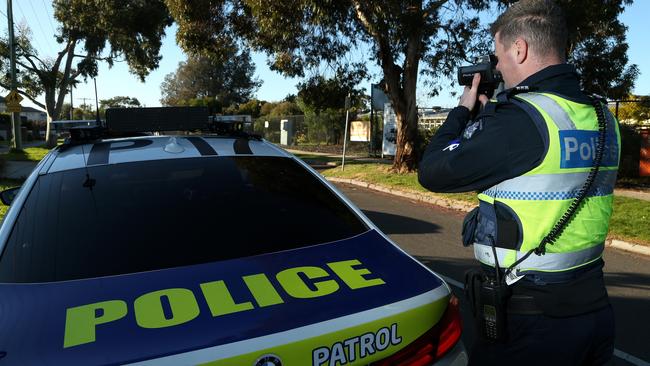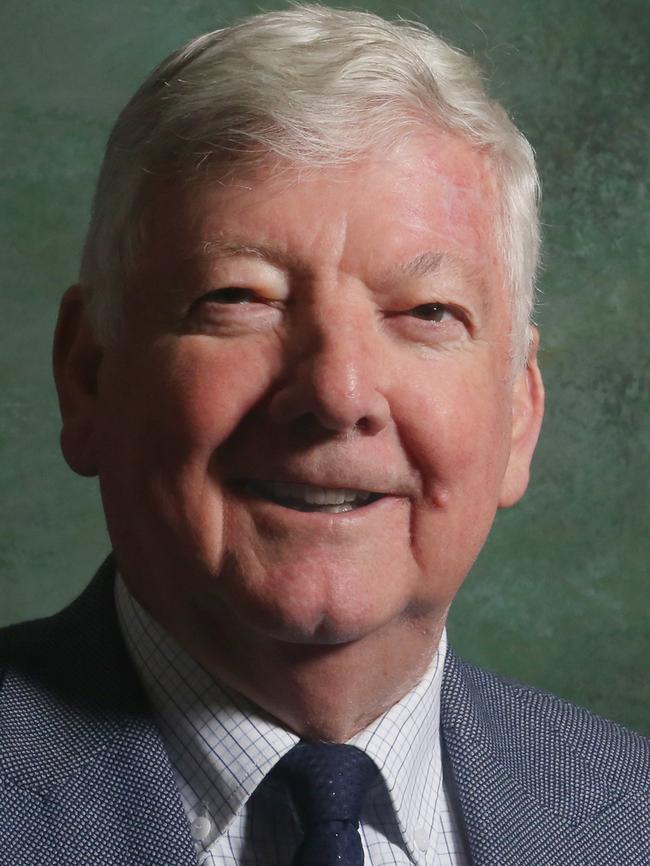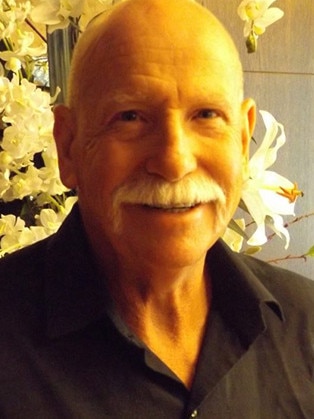How Victoria Police could be missing key opportunity to reduce lives lost on the roads
Data reveals Victoria Police could be missing tens of thousands of potentially lifesaving opportunities to take drunk and erratic drivers off the state’s roads each year. Read why.

Police & Courts
Don't miss out on the headlines from Police & Courts. Followed categories will be added to My News.
Victoria Police could be missing tens of thousands of potentially lifesaving opportunities to take drunk and erratic drivers off our roads each year, new data reveals.
Internal Victoria Police data recently released to the Community Advocacy Alliance (CAA) under Freedom of Information laws, and seen by the Herald Sun, reveals the force is not effectively investigating triple-0 calls about erratic driving.
The CAA – composed of retired senior police officers and concerned citizens who are striving for a safer Victoria – sought the data for the years 2020, 2021 and 2022.
It reveals that while police responded to the majority of calls, most incidents were closed when the driver was not located at the scene.
This means there was no follow-up investigation in almost 90 per cent of the 51,305 triple-0 calls made in 2022 after only a “keep a lookout” broadcast was issued to officers on the road.
Just over 1000 of these calls resulted in an outcome, with over 900 offences detected, 117 offenders apprehended, 22 defect notices issued and six stolen cars located.
This is a success rate of just over two per cent, and is consistent for each of the three years the data was collected.
It isn’t known exactly how many of these dangerous drivers go on to cause serious injury or fatality collisions as the data has never been collected.
This is a change retired police Inspector John Thexton and internationally recognised road safety expert Dr Ray Shuey – who is an executive member of the CAA and a former Assistant Commissioner for Traffic and Operations for Victoria Police – believe needs to happen now, off the back of such a deadly year on Victoria’s roads.
While understanding that almost 40 per cent of the drivers had disappeared by the time police arrived on scene and a further 29 per cent were unable to be located, Mr Thexton said what concerned him was that there was “virtually no follow up investigation”.


In today’s world, the ex cops believe there are plenty of avenues to follow-up on such as by tracking down CCTV and dashcam footage, as well as running checks on the registration plates filed as part of the triple-0 call.
Dr Shuey said other crimes were always followed up so driving offences should be treated the same way.
“If somebody held up the bank or assaulted someone and police got there and couldn’t find the offender, they don’t just leave it at that. The follow-up is important.
“We shouldn’t just be saying ‘gone on arrival’ and that’s the end of it.
“These are the same percentage stats from 10-12 years ago. We’re only getting two per cent of the villains on the road and doing something with them while the rest are getting away with it.”
He said it was likely these drivers were driving disqualified or unlicensed, and could also be recidivists but this was not known.
Worse still, he said failing to catch the crooks was negative reinforcement for their bad driving behaviour.
“This is critical with drink drivers, for example. If they drive home from the pub 10 times and nothing happens, they’ll keep doing it until something brings them to a crashing halt.”
As a high-ranking police officer, Mr Thexton first became aware of the “woefully inadequate” police response to erratic drivers almost 20 years ago and has been working since to raise the issue as a potential way to address road trauma in Victoria.
“I reported my concerns that those drivers seen driving dangerously were likely to go on and be involved in avoidable collisions amounting to death, serious injury and property damage.”
Between 2006 and December 2011 he became increasingly “concerned about the direction of policing in Victoria”.
A large part of his concern was an ongoing failure to listen to the community.
Now the Deputy Chairperson of CAA, he said the latest data showed the community still wanted to make the road network safer but little had changed with the police response to the issue in the intervening decade.
“I have written to every Assistant Commissioner for Traffic on their appointment alerting them to this very important issue to no avail,” he added.
Mr Thexton worries the ongoing police failure to respond to the issue is resulting in preventable deaths and serious injuries on the state’s roads each year, as well as missed opportunities to catch, prosecute and rehabilitate dangerous drivers.
Research shows that people who deliberately drive erratically exhibit a whole range of other anti-social behaviours including illicit drug use and family violence.
“Investigating bad driving also identifies those who should be investigated for other criminal behaviours,” Mr Thexton said.
“It can be the first indicator something is wrong.”
He believes doing so would create real and lasting change and would also increase confidence in policing.
Dr Shuey agrees:
“Every fatal crash is a $2m cost to the economy, then how many of these fatal and serious collisions could we avoid by taking some of these people off the road?”
A Victoria Police spokesperson said:
“Nowhere in the data provided to the Herald Sun under FOI, does it show police failed to respond to Triple Zero (000) calls regarding drunk and erratic drivers.
“In fact, the data shows that police responded in some way to all the calls of this nature in 2022.”
Victoria Police would not comment on whether it would improve its response to the calls.



